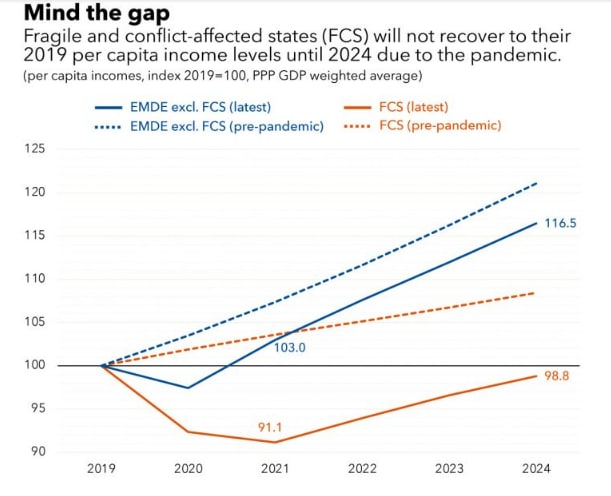America and China: The Powerful Dollar and Bankrupt Countries
Antony Blinken, the U.S. Secretary of State, recently hosted his Sri Lankan counterpart. The newly established government in Sri Lanka emerged after a long period of political tension and conflicts resulting from deep public dissatisfaction with the country’s economic and living conditions. The resignations of the previous government members and the arrival of the new government have sparked a glimmer of hope among the people for the improvement of the country’s situation. The story of Sri Lanka is one that could unfold for many countries.
Crushing Debts
Numerous countries around the world are facing high debt levels. Countries like El Salvador, Tunisia, Egypt, and Ghana are on the verge of entering a critical state. The inability to pay debts, reduced income, and ultimately depleting foreign reserves during the COVID-19 pandemic have worsened the debt situation of countries. There are solutions for these countries, such as controlling budget deficits and implementing anti-corruption policies to prevent currency outflows and at least delay the crisis. On the other hand, creditor countries have in recent years created structures to review and forgive some debts through the G20 countries’ programs, but this structure is facing problems due to an important force.
China, the Major Creditor
China has not even joined the structure established by the G20 to address the debt crises of countries. The Chinese have indebted poor and developing countries through massive investment plans and endless loans. A main condition of many investment contracts is keeping the contract details secret and China’s control over the interaction process regarding capital cycles in these countries. China itself claims to be solving the debt crises of poor countries and even after reaching agreements with countries about their debts, it does not disclose the details. This is a warning signal for countries like Iran that, due to agreements with China, may soon face problems and instability.
Poverty and Political Instability: The Danger of the Next Decade
The International Monetary Fund has identified 40 countries as fragile economies. The Economist magazine, based on standard definitions, has categorized 53 countries as fragile. However, the important point is not the number of countries. The debts of poor countries are expanding. The prices of food, energy, and essential health and sanitation goods are rising globally, and the struggle of poor countries to provide for their citizens’ needs is becoming increasingly futile due to depleting foreign reserves caused by high debts. The IMF has released new statistics indicating that countries with fragile economies are home to one billion people worldwide. This billion people are grappling with rising prices for all items, and just the 23% increase in food prices over the past year is enough to understand the danger.

America, the Dollar, and Debtor Countries
China, which has entangled many countries with the dollar, capital flow, and loans, is benefiting to the maximum from a unique transformation, just like other investors and creditors. The dollar is in its strongest position ever and shows no signs of stopping. The U.S. dollar is considered the best investment option under normal circumstances, and now, with the Federal Reserve’s actions and the increase in interest rates, which means more expensive access to dollars, the dollar has risen even higher in the capital market. The stronger the dollar becomes, the heavier the debt burden on debtors, which is undoubtedly in dollars. Poor countries are hoping for aid and agreements from wealthy and creditor countries to review and forgive debts. Antony Blinken’s visit to Africa and his negotiations with the Sri Lankan Foreign Minister, along with his statements, indicate the Biden administration’s serious intention to help countries with fragile economies. However, the threat of fundamental political crises due to public dissatisfaction in poor and fragile economies remains the main threat to international politics. You remember the bank hostage situation in Beirut, don’t you?

